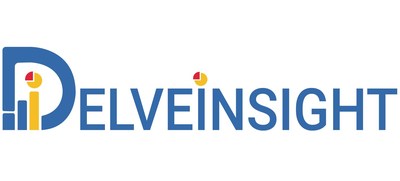Rett Syndrome Market Sees Momentum with Novel Gene and Protein-Targeted Therapies | DelveInsight
Rett syndrome market dynamics are expected to undergo significant shifts as more targeted therapies, including gene therapies and pharmacological interventions, enter clinical development and regulatory approval stages. Additionally, increased awareness, improved diagnostic methods, and collaborative efforts within the healthcare community may drive Rett syndrome market expansion and accessibility to treatments for affected individuals.
LAS VEGAS, May 26, 2025 /PRNewswire/ -- Rett syndrome is a rare genetic neurological condition that typically emerges in infancy and primarily affects girls, though occasional cases have been observed in boys. The disorder causes profound impairments that impact nearly all aspects of a person's life.

It is the second leading cause of severe intellectual disability in females. During the stage of developmental regression, many individuals with Rett syndrome also meet the diagnostic criteria for autism spectrum disorder (ASD). The condition mostly affects females because it is linked to mutations on the X chromosome. Females have two X chromosomes, which can provide some genetic compensation, whereas males, who have only one X chromosome, are less likely to survive if the MECP2 gene is mutated.
There is no known cure for Rett syndrome, and treatment focuses on symptom management through a comprehensive, multidisciplinary approach. Care often involves coordination among various specialists, including pediatricians, pediatric neurologists, gastroenterologists, speech therapists, psychiatrists, nutritionists, and others, to address the child's complex needs. Genetic counseling can also be helpful for patients and their families. Rett syndrome treatment typically includes physical therapy, occupational therapy, speech and language therapy, nutritional support, and medications.
Learn more about the Rett syndrome treatment @ New Treatment for Rett Syndrome
In March 2023, the US FDA approved Acadia Pharmaceuticals' DAYBUE (trofinetide) as the first treatment for Rett syndrome in both adults and children aged two years and older. Trofinetide is a synthetic analog of a naturally occurring tripeptide called glycine-proline-glutamate (GPE).
While the precise therapeutic mechanism of trofinetide in Rett syndrome remains unclear, animal studies have shown that it can promote dendritic branching and enhance synaptic plasticity. The medication is administered either orally or through a gastrostomy tube, taken twice daily—morning and evening—with or without food.
Other Rett syndrome treatments, such as bromocriptine and carbidopa-levodopa (dopamine agonists), have been explored to manage motor symptoms in Rett syndrome, though their effectiveness tends to be limited and short-lived. Some evidence suggests levocarnitine may offer benefits in certain cases. For patients with gastroesophageal reflux (GER), antireflux medications like metoclopramide may be helpful, and anti-epileptic drugs are often used to manage seizure-like episodes. While none of these treatments offer a cure, they can help alleviate symptoms such as seizures, breathing irregularities, abnormal heart rhythms, indigestion, and constipation.
Find out more on FDA-approved Rett syndrome drugs @ Rett Syndrome Treatment Options
The pipeline for Rett syndrome is continuously evolving with ongoing research and clinical trials focusing on innovative approaches to improve outcomes and reduce side effects. Current areas of interest in the pipeline include targeted therapies, gene therapies, and others.
Thus, the pipeline for Rett syndrome looks promising, with a range of novel therapies such as NA-921 (Bionetide) (Biomed Industries), NGN-401 (NEUROGENE), TSHA-102 (Taysha Gene Therapies), ANAVEX2-73(BLARCAMESINE) (Anavex Lifesciences), and others, and approaches under investigation that have the potential to redefine Rett syndrome treatment standards and improve patient outcomes in the future.
Discover which therapies are expected to grab major Rett syndrome market share @ Rett Syndrome Market Report
ANAVEX2-73 (blarcamesine), developed by Anavex Life Sciences, is an experimental oral treatment aimed at restoring normal brain signaling in individuals with Rett syndrome by activating the sigma-1 receptor (SIGMAR1), a key brain protein. The drug is currently being assessed in two clinical trials:
- The AVATAR study, a Phase III double-blind, randomized, placebo-controlled trial in adults (18+) with Rett syndrome. This study evaluates the drug's safety, tolerability, and efficacy using a range of clinical, molecular, and biochemical endpoints.
- The EXCELLENCE study, which is investigating its effects in pediatric patients aged 5–17 years.
Results from an earlier Phase II trial in adult patients indicated behavioral improvements that persisted for several months during an extension phase. ANAVEX2-73 has received Fast Track, Rare Pediatric Disease, and Orphan Drug designations from both the FDA and the European Union.
NGN-401, being developed by Neurogene, is an investigational one-time gene therapy for Rett syndrome based on an AAV9 vector. It is the first clinical candidate to deliver the full-length human MECP2 gene using Neurogene's proprietary EXACT™ technology, which precisely controls gene expression levels. This regulation is critical for treating Rett syndrome, as excessive MECP2 expression can lead to toxicity, a challenge for traditional gene therapies.
Neurogene is currently conducting a Phase I/II clinical trial for NGN-401. In April 2025, the company published peer-reviewed research in Science Translational Medicine showcasing the ability of EXACT to maintain MECP2 expression at safe and therapeutic levels in preclinical Rett models. These findings supported the launch of their ongoing clinical trial.
NGN-401 has received Fast Track, Rare Pediatric Disease, and Orphan Drug status from the FDA, along with Orphan and Advanced Therapy Medicinal Product designations from the EMA and Innovative Licensing and Access Pathway (ILAP) designation from the UK's MHRA.
TSHA-102 is an experimental gene therapy delivered intrathecally using a self-complementary AAV9 vector, currently being studied for the treatment of Rett syndrome. Intended as a one-time therapy, it targets the underlying genetic cause of the disorder by introducing a functional MECP2 gene into cells of the central nervous system (CNS). The therapy features an innovative miRNA-Responsive Auto-Regulatory Element (miRARE) technology, which helps regulate MECP2 expression in individual CNS cells, minimizing the risk of overexpression.
TSHA-102 has been granted multiple regulatory designations, including Regenerative Medicine Advanced Therapy, Fast Track, Orphan Drug, and Rare Pediatric Disease designations from the FDA, Orphan Drug designation from the European Commission, and an Innovative Licensing and Access Pathway designation from the UK's Medicines and Healthcare products Regulatory Agency.
NA-921 (Bionetide) is an orally administered small molecule currently in Phase III clinical trials for treating Rett syndrome. Its ability to efficiently cross the blood-brain barrier allows it to be effective at low doses. In March 2025, Biomed Industries announced the results of its Phase II/III clinical trials. The topline data confirmed strong evidence of both safety and efficacy. A comparative analysis of side effects revealed that NA-921 has a significantly better safety and tolerability profile than DAYBUE, a drug marketed by Acadia Pharmaceuticals, Inc. These results position NA-921 as a promising new treatment option, with reduced side effects and higher patient adherence.
Discover more about drugs for Rett syndrome in development @ Rett Syndrome Clinical Trials
The anticipated launch of these emerging therapies for Rett syndrome are poised to transform the market landscape in the coming years. As these cutting-edge therapies continue to mature and gain regulatory approval, they are expected to reshape the Rett syndrome market landscape, offering new standards of care and unlocking opportunities for medical innovation and economic growth.
DelveInsight estimates that the market size for Rett syndrome is expected to grow at a significant CAGR by 2034. The Rett syndrome market is estimated to change significantly for the forecast period 2025–2034. Major Rett syndrome market drivers, such as rising prevalence, technological advancements, and upcoming therapies, will boost the Rett syndrome market significantly.
DelveInsight's latest published market report, titled as Rett Syndrome Market Insight, Epidemiology, and Market Forecast – 2034, will help you to discover which market leader is going to capture the largest market share. The report provides comprehensive insights into the Rett syndrome country-specific treatment guidelines, patient pool analysis, and epidemiology forecast to help understand the key opportunities and assess the market's underlying potential. The Rett syndrome market report proffers epidemiological analysis for the study period 2020–2034 in the 7MM segmented into:
- Total Rett Syndrome Diagnosed Prevalent Cases
- Rett Syndrome Gender-Specific Diagnosed Prevalent Cases
- Rett Syndrome Age-specific Diagnosed Prevalent Cases
- Rett Syndrome Treated Cases
The report provides an edge while developing business strategies by understanding trends shaping and driving the 7MM Rett syndrome market. Highlights include:
- 10-year Forecast
- 7MM Analysis
- Epidemiology-based Market Forecasting
- Historical and Forecasted Market Analysis upto 2034
- Emerging Drug Market Uptake
- Peak Sales Analysis
- Key Cross Competition Analysis
- Industry Expert's Opinion
- Access and Reimbursement
Download this Rett syndrome market report to assess the epidemiology forecasts, understand the patient journeys, know KOLs' opinions about the upcoming treatment paradigms, and determine the factors contributing to the shift in the Rett syndrome market. Also, stay abreast of the mitigating factors to improve your market position in the Rett syndrome therapeutic space.
Related Reports
Rett Syndrome Epidemiology Forecast
Rett Syndrome Epidemiology Forecast – 2034 report delivers an in-depth understanding of the disease, historical and forecasted Rett syndrome epidemiology in the 7MM, i.e., the United States, EU5 (Germany, Spain, Italy, France, and the United Kingdom), and Japan.
Rett Syndrome Pipeline Insight – 2025 report provides comprehensive insights about the pipeline landscape, pipeline drug profiles, including clinical and non-clinical stage products, and the key Rett syndrome companies, including Anavex Life Sciences Corp, Neurogene, Taysha GTx, among others.
Angelman Syndrome Market Insights, Epidemiology, and Market Forecast – 2034 report delivers an in-depth understanding of the disease, historical and forecasted epidemiology, as well as the market trends, market drivers, market barriers, and key Angelman syndrome companies, including GeneTx Biotherapeutics, GEXVal, Ionis Pharmaceuticals, Neuren Pharmaceuticals, Ovid Therapeutics, PTC Therapeutics, Roche, Sarepta Therapeutics, StrideBio, Taysha Gene Therapies, Ultragenyx Pharmaceutical, among others.
Angelman Syndrome Pipeline Insight – 2025 report provides comprehensive insights about the pipeline landscape, pipeline drug profiles, including clinical and non-clinical stage products, and the key Angelman syndrome companies, including Neuren Pharmaceuticals, Ultragenyx Pharmaceutical, Ionis Pharmaceuticals, Roche, GEXVal, PTC Therapeutics, Taysha Gene Therapies, Ovid Therapeutics, among others.
About DelveInsight
DelveInsight is a leading Business Consultant and Market Research firm focused exclusively on life sciences. It supports pharma companies by providing comprehensive end-to-end solutions to improve their performance. Get hassle-free access to all the healthcare and pharma market research reports through our subscription-based platform PharmDelve.
Contact Us
Shruti Thakur
info@delveinsight.com
+14699457679
Logo: https://mma.prnewswire.com/media/1082265/3528414/DelveInsight_Logo.jpg
![]() View original content:https://www.prnewswire.co.uk/news-releases/rett-syndrome-market-sees-momentum-with-novel-gene-and-protein-targeted-therapies--delveinsight-302465000.html
View original content:https://www.prnewswire.co.uk/news-releases/rett-syndrome-market-sees-momentum-with-novel-gene-and-protein-targeted-therapies--delveinsight-302465000.html

